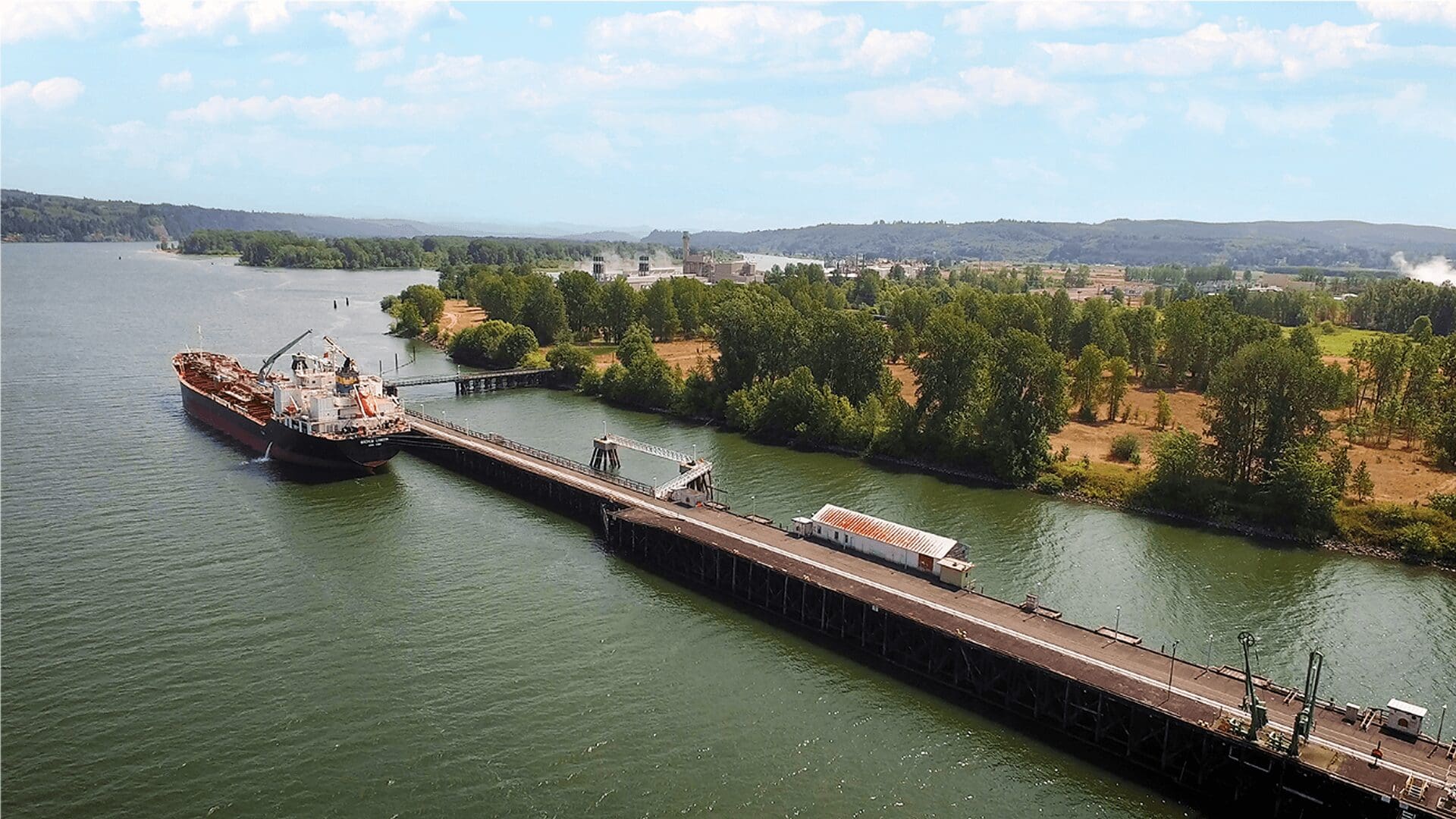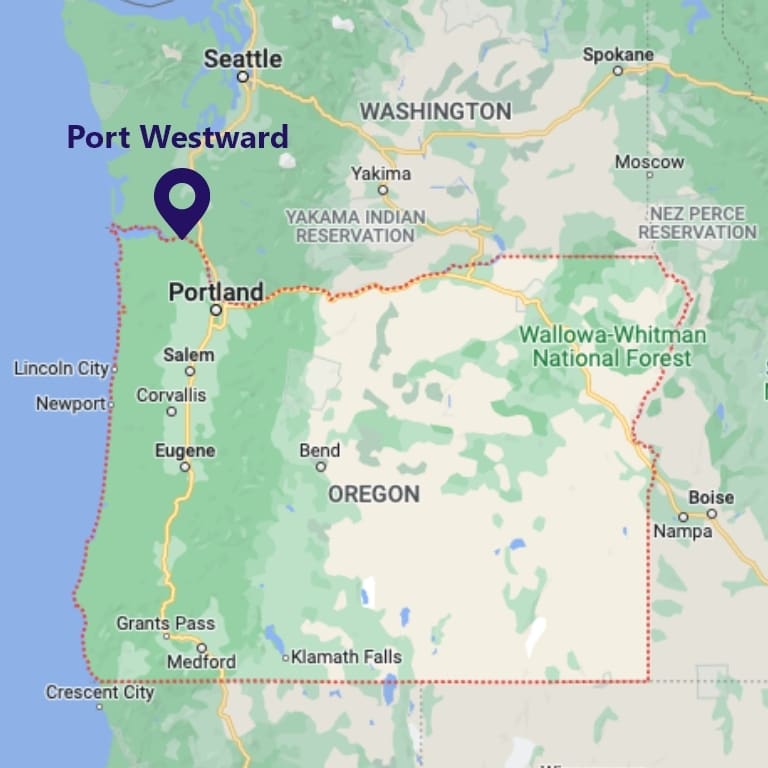
Port Westward
Our original development project is proposed for Port Westward near Clatskanie, Oregon and adjacent to the Columbia River maritime channel. If all permitting approvals are granted, this site will be the home to a renewable diesel and sustainable aviation fuel hub with production capacity of up to 50,000 barrels of clean fuel per day. NXTClean anticipates that construction of this facility will begin in late 2024.
Photography courtesy of the Port of Columbia County
Local Facility Permits
Approved
State Facility Permits
Approved
Federal Facility Permit
Pending
2024-2026
Anticipated Operations Start
2027

Products
Supporting Energy Independence
Renewable Diesel
Made from a variety of organic waste materials, renewable diesel (RD) has up to 85% lower carbon emissions than traditional diesel and is a proven “drop-in” fuel, meaning it is chemically identical to petroleum-based fuels and doesn’t require any modifications to the equipment it’s powering.
Sustainable Aviation Fuel
Sustainable Aviation Fuel (SAF) is a cutting-edge renewable fuel made using organic feedstocks instead of petroleum. This results in up to 80% lower carbon emissions than traditional jet fuel, enabling airlines to accomplish their carbon reduction goals.
Production Amounts
SAF & RD
At Start-up
45,000
Barrels Per Year
At Full Capacity
50,000
Barrels Per Year
Clean Fuels’ Positive Benefit
on the Environment
Renewable Diesel
Up to 85% fewer GHG emissions than traditional petroleum diesel
Sustainable Aviation Fuel
Up to 80% fewer GHG emissions than traditional aviation fuel
Positive Benefit on the Economy
Estimated Tax Revenues
$65 million in taxes to support state and local taxing districts during construction
$45 million in taxes to support state and local taxing districts during operation
$13 million a year in local property taxes
$5.5 million in Port fees
Green Jobs Generated
2,400 during construction
240 during operation
Wetland Restoration
Restoring and enhancing nearly 500 acres of wetlands near the Port Westward facility to create diverse native habitat for Columbia County – converting disused single-species tree farmland into habitat crucial for pollinators, local fauna, and iconic native species.
Photography courtesy of the Port of Columbia County.
